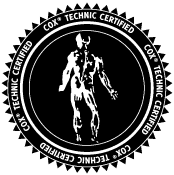March 04, 2011
If you're like most Richmond residents, you take Vitamin C. This well-known, popular vitamin is touted for its antioxidant power and role in the support of a healthy immune system (1). But did you know that nutrition research into Vitamin C has revealed its role in forming bone and protecting it? Johnson Chiropractic wants to inform you of the nutritional benefits, and how Richmond chiropractic patients can take advantage of this to maximize their care for spinal pain management.

- Vitamin C is essential for collagen formation and normal bone development. A possible protective role of Vitamin C for bone health in older men as higher vitamin C intake is associated with lower 4-year bone loss in elderly men. (2)
- Administration of 1,000 mg of ascorbic acid Vitamin C together with 400 IU of alpha-tocopherol could be useful in preventing or aiding in the treatment of age-related osteoporosis and bone loss. (3)
- In a study of 277 women who were regular Vitamin C supplement users for an average of 12.4 years with calcium and/or estrogen, researchers measured bone density. They found that Vitamin C supplement use appears to have a beneficial effect on levels of bone mineral density, especially among postmenopausal women using concurrent estrogen therapy and calcium supplements. (4)
- Most experts recommend vitamin D, calcium, exercise and bisphosphonates to keep bones healthy, says Dr. Kenneth Gabbay of Baylor College of Medicine, who further states that "Vitamin C is never mentioned, whereas it's likely an equally important element for maintaining strong healthy bones." (5)
- Vitamin C deficiency is an under-diagnosed contributor to degenerative disc disease (DDD) in the elderly. Researchers explain that once DDD has begun, accompanying tissue degeneration may further increase Vitamin C requirements for the collagen synthesis necessary for healthy bone in the affected patient. This creates a range of issues that potentially accelerates and contributes to further disc degeneration and low back pain. (6) Richmond is no different; Vitamin C deficiency is a contributor to DDD and supplementation may be a helpful addition to your diet.
Since the human body doesn't make or store Vitamin C, it must be ingested daily. Just like monitoring calorie intake while eating out, monitoring your intake of Vitamin C is important. If you determine that your current diet is deficient in sources of natural Vitamin C, you will want to consider supplementation. The amount of Vitamin C necessary for Richmond chiropractic patients will vary from individual to individual. Factors such as weight, age, and gender are important; so are lifestyle factors including pregnancy, or smoking.
- For the average adult male, 90 mg/day of Vitamin C is recommended. (7)
- For the average adult female, 75 mg/day of Vitamin C is recommended. (7)
Consult your Richmond chiropractor to determine the appropriate daily dosage of Vitamin C for you to protect your bones and enhance your bone mineral density throughout your life.
References
- Bsoul SA et al: Vitamin C in health and disease. J Contemp Dent Pract. 2004 May 15;5(2):1-13.
- Sahni S et al: High vitamin C intake is associated with lower 4-year bone loss in elderly men. J Nutr 2008 Oct;138(10):1931-8.
- Ruiz-Ramos M et al: Supplementation of ascorbic acid and alpha-tocopherol is useful to preventing bone loss linked to oxidative stress in elderly. J Nutr Health Aging. 2010 Jun;14(6):467-72.
- Morton DJ et al: Vitamin C supplement use and bone mineral density in postmenopausal women. J Bone Miner Res. 2001 Jan;16(1):135-40.
- Vitamin C protects, maintains health bone mass. http://www.bcm.edu/news/item.cfm?newsID=2218
- >Smith VH: Vitamin C deficiency is an under-diagnosed contributor to degenerative disc disease in the elderly. Med Hypotheses. 2010 Apr;74(4):695-7. Epub 2009 Nov 22.
- Office of Dietary Supplements, National Institutes of Health: Dietary Supplement Fact Sheet: Vitamin C

